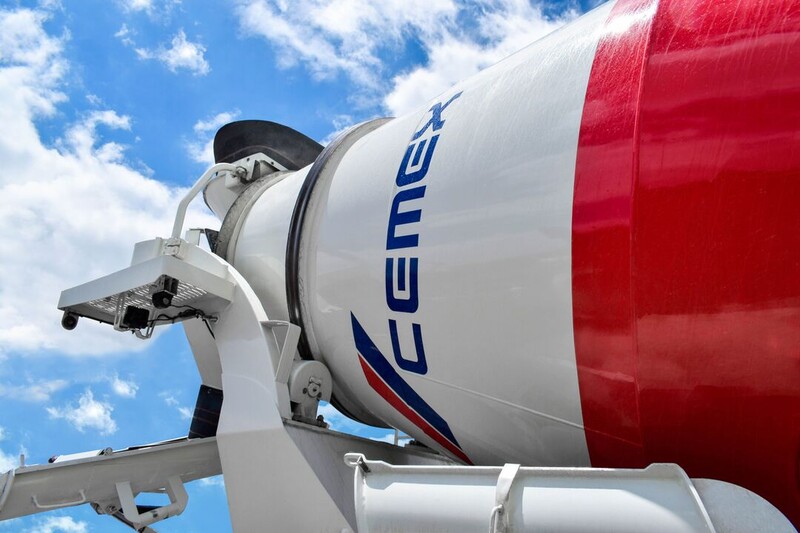Rights and Accountability 11 April 2023

Mexican construction materials giant Cemex continues to operate in Israel’s illegal West Bank colonies built on land stolen from Palestinians, via its subsidiary Readymix. (via Twitter)
A subsidiary of Mexican construction materials giant Cemex has reportedly sold two cement factories in Israeli colonial settlements in the occupied West Bank.
But shipping certificates obtained by The Electronic Intifada indicate that the subsidiary, Readymix Industries, remains involved in the operation of the two plants.
This suggests that Cemex is trying to conceal its ongoing complicity in Israeli war crimes. All Israeli settlements in occupied territory are illegal under international law.
Cemex operates in dozens of countries and has strong connections to Israel.

January 2022 order document shows Readymix was involved in shipping concrete from the Mishor Adumim settlement factory.
Through its subsidiary Readymix, Cemex has provided materials to build Israeli settlements, military infrastructure and the colonial light rail in occupied East Jerusalem, as well as checkpoints that are used to enforce Israel’s system of apartheid.
“Sale”
In February last year, Israeli business publication Calcalist reported that Readymix sold the two factories in October 2021 in the settlement industrial parks of Atarot and Mishor Adumim
The two facilities were supposedly sold to an Israeli company called Atid Beton.
Calcalist is published in Hebrew which may explain why the news about the sale did not reach the international press.
But the move came amid an ongoing campaign to pressure Cemex, by the Palestinian-led boycott, divestment and sanctions (BDS) movement.
A few months before the reported sale, more than 130 Mexican civil rights organizations wrote to Cemex urging the firm to “withdraw its production plants” from the occupied West Bank as well as from the Israeli-occupied Golan Heights.
The groups asserted that Cemex’s business with Israel “makes it complicit in the crimes committed against the Palestinian people, as it allows Israeli policies of occupation, apartheid and colonization to continue even against the resolutions of the United Nations, the verdict of the International Court of Justice and Mexico’s foreign policy.”
And indeed, in light of the reported sale, the two settlement factories no longer appear on the Readymix website.

December 2022 order shows Cemex-owned Readymix was involved in shipping concrete from the Atarot settlement factory.
Readymix still running settlement factories
But shipping certificates obtained by The Electronic Intifada confirm Cemex’s continued involvement in the occupied West Bank.
The documents dated 4 January 2022 and 12 December 2022 bear the name of Readymix and show that the company has remained involved in supplying cement from the factories in Atarot and Mishor Adumim even after their supposed sale to Atid Beton.
This corroborates Calcalist’s reporting that Cemex-owned Readymix never really divested from the settlement factories but merely hid its role under a new arrangement.
In its February 2022 article, Calcalist openly questioned whether the BDS campaign had anything to do with the reported sale of the two settlement plants.
Ytzhak Bejerano, president of Readymix, confirmed to Calcalist that the company sold the two plants to Atid Beton, claiming that the transaction aimed to raise capital for future investments.
Bejerano denied any connection to pressure on Cemex by the BDS movement.
But Calcalist raised concerns about the character of the sale. It also reported on shipping certificates from the Atarot and Mishor Adumim plants showing the names of both Atid Beton and Readymix.
It revealed that employees who worked at the two Readymix plants continued to work for Atid Beton and the new manager of the two plants previously managed other Readymix facilities.
Sitting on stolen land
In response to Calcalist’s questions about the shipping certificates, Bejerano confirmed that Readymix remains responsible for the management of the factories, including customer relations, technology and quality control.
According to Bejerano, the sale only concerned the land and the physical facilities.
However Mishor Adumim is built on land Israel forcibly expropriated from the Palestinian villages of al-Eizariya, Issawiyeh and al-Zaayim, while Atarot is built on land stolen from the Palestinian town of al-Ram.
In this context, Bejerano’s claim that Cemex “sold” the land means that it merely profited from something it could not have lawfully owned in the first place.
Leaving that aside, the removal of the two settlement factories from the Readymix website while the company is still responsible for the operations appears to be a cover up.
The fact is that Cemex, through Readymix, remains involved in the two illegal settlement factories in Atarot and Mishor Adumim.
Readymix also operates a construction materials store in the settlement of Mevo Heron, also in the occupied West Bank.
“Corporate responsibility”
Like many corporations, Cemex claims to operate according to ethical principles.
The company asserts that it has a “long-standing commitment to corporate responsibility and to the respect of human rights,” including “ameliorating the emergency humanitarian situation in conflict-affected or high risk areas.”
But with its settlement businesses, Cemex is enabling and profiting from Israel’s regime of occupation, land theft and apartheid.
This does not mean, however, that boycott, divestment and sanctions campaigning do not work.
In 2015, Cemex sold its shares in Yatir, an Israeli-controlled quarry in the West Bank after a decade of plundering Palestinian natural resources.
That decision followed the exclusion of Cemex from investment portfolios by Norwegian and Swedish pension funds due to the Mexican company’s complicity in Israeli abuses.
Six years ago, the Stop Cemex campaign gained momentum in Latin America when over 200 organizations and high-profile figures criticized Cemex for “directly enabling and profiting from illegal and inhumane Israeli policies.”
Some of the largest trade unions and human rights organizations in Latin America have lent their support to the Stop Cemex campaign.
Cemex’s attempt to hide its ongoing profiteering from Israel’s crimes means the company is feeling the pressure.
BDS campaigners will therefore undoubtedly take the message that they should increase their pressure on Cemex until it ends its complicity in Israel’s colonial enterprise once and for all.
Ali Abunimah contributed reporting.





